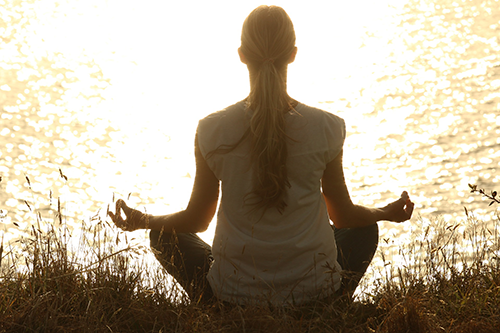
(Published 2023 April)
 Need a quick way to center yourself and your self-care in the midst of a stressful day? Take a moment to breathe. In fact, experts say, deep breathing is a form of meditation that shifts the effects of trauma in our bodies from nervous system overload to less anxiety and stress, and studies show it comes with a host of health benefits, too. It can help you get better night sleep, regulate blood sugar levels, ease depression, increase focus, maybe drop a few pounds, and so much more.
Need a quick way to center yourself and your self-care in the midst of a stressful day? Take a moment to breathe. In fact, experts say, deep breathing is a form of meditation that shifts the effects of trauma in our bodies from nervous system overload to less anxiety and stress, and studies show it comes with a host of health benefits, too. It can help you get better night sleep, regulate blood sugar levels, ease depression, increase focus, maybe drop a few pounds, and so much more.
Best of all: This no-cost practice can be done anywhere at any time.
There are a lot of deep breathing techniques, including:
- 4-7-8 breathing involves a hold followed by a slow, audible exhale.
- Box breathing requires breathing in for a count of 5, holding your breath for a count of 5, and then exhaling for a count of 5. (You might practice this technique when someone cuts you off in traffic!)
- Diaphragmatic or “belly” breathing focuses on activating the diaphragm, the muscle below just below your lungs.
- Pursed-lip breathing is an inhale through your nose, then a slow, intentional exhale through pursed lips.
No matter which technique or combination of techniques you choose, make sure to incorporate conscious breathing into each day. You can do this by scheduling breathing breaks—set an alarm if you need to--throw on mellow music and sync your breathing to the beat, or make your breathing part of a ritual, with aromatherapy, candles and tea.
This article posting is part of the Domestic and Sexual Violence Services' Volunteer Voices monthly newsletter for current and potential volunteers. If you're not already a volunteer, learn how to get involved. Find out about upcoming trainings, volunteer trainings, happenings around the DSVS office and information about articles, books, media recommendations and more.
Learn more about the Domestic and Sexual Violence Services (DSVS).

